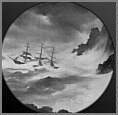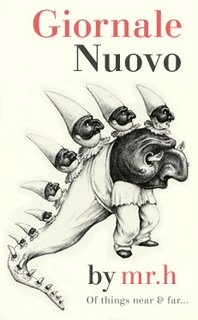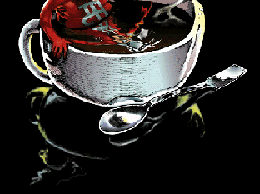The Telling of the Bees
CONTRIBUTIONS FROM
THE MUSEUM OF JURASSIC TECHNOLOGY
COLLECTIONS AND EXHIBITIONS
_________________________
Tell the Bees...
Belief, Knowledge and Hypersymbolic Cognition

In the early years of the 20th century, however, there began a movement which flourished under the banner of The Restitution of Decayed Intelligence. Among individuals from various disciplines, it began to be clear that the powerful forces of rationality in their admirable but relentless quest for a reasonable and enlightened future were leaving a swath of decimation in the vast, yet often fragile body of what was by then known as "vulgar knowledge".
Although wide spread, the movement as a whole drew essential inspiration from the writings of Samuel Osprey, who though born in Scotland, settled in Florida in the decade of the teens where he founded the Society for the Restitution of Decayed Intelligence.
The work of the society continued through the 20th century and has had far reaching effects in many ways in many areas of endeavor. We have already noted the extraordinary advances in the field of medicine, which resulted from the restitution of decayed intelligence, but many other fields of endeavor have also been strongly affected. In literature, for example, the early years of this century saw such giants as William Butler Yeats and James Joyce, who's writings were profoundly affected by common knowledge. In the musical world, Charles Ives and Aaron Copland to name just two, drew important inspiration from the music of the common man.
In a similar way, this renaissance of interest in the application of the vast body of vulgar or common knowledge has profoundly effected the fields of ontology and epistemology - the various studies of our methods of comprehending our world - through a renewed interest in and investigation of the beliefs and practices often unceremoniously dismissed as "superstition."
Just as the investigations of various discarded vulgar remedies have led to many important pharmacological discoveries, the investigation of cast off "superstitions" or vulgar knowledge often leads to important advances in the ways in which we understand the mechanisms of the world around us - ontological understandings.
This field of endeavor, however, has been less well developed and is, in fact, only now beginning to be appreciated for the vast, if sometimes overwhelming vista it presents.
 Like the period of the flowering of folk remedies into modern pharmaceuticals, there has been building for some time now an interest in what has come to be called "superstition" not just from a folkloric perspective, but from a perspective of recognition of the simple efficacy of the beliefs and practices in question and a corresponding wave of interest in the mechanisms by which these often seemingly nonsensical practices work.
Like the period of the flowering of folk remedies into modern pharmaceuticals, there has been building for some time now an interest in what has come to be called "superstition" not just from a folkloric perspective, but from a perspective of recognition of the simple efficacy of the beliefs and practices in question and a corresponding wave of interest in the mechanisms by which these often seemingly nonsensical practices work.
"The efficacy of the practice of certain "superstitious" beliefs is not the question... Our efforts now should be in the direction of by what mechanisms, with which subjects and under what conditions are the practices of these beliefs potent and, contrariwise, by what mechanisms, with which subjects and under what conditions are the practices of these beliefs impotent"
The vista of this field is vast and can be overwhelming. It was, in fact, only toward the end of the last century that this enormous body of vulgar knowledge or traditional belief even came to be gathered (and, unfortunately, dismissed) under the rubric "superstition". Prior to that time vulgar knowledge was contiguous with all other knowledge and not ghettoized, so to speak, under the spurious classification of "superstition".
 In order to not to be set hopelessly adrift in this seemingly endless sea of complex and interrelating beliefs, this exhibition has limited its discussion into five areas of inquiry and each exhibit bears a mark which should help the visitor in the identification of the source of the particular belief. The five areas of inquiry are:
In order to not to be set hopelessly adrift in this seemingly endless sea of complex and interrelating beliefs, this exhibition has limited its discussion into five areas of inquiry and each exhibit bears a mark which should help the visitor in the identification of the source of the particular belief. The five areas of inquiry are:
- Pins and Needles
- Shoes and Stockings
- Body Parts and Secretions
- Thunder and Lightning
- Insects and Other Living Things
Many of the beliefs illuminated in this exhibition are and have been practiced in surprisingly similar forms by peoples separated by hundreds or thousands of miles and often hundreds or thousands of years. One such belief is the belief from which this exhibition draws its name - The Telling of the Bees.






































































































0 Comments:
Post a Comment
Subscribe to Post Comments [Atom]
<< Home